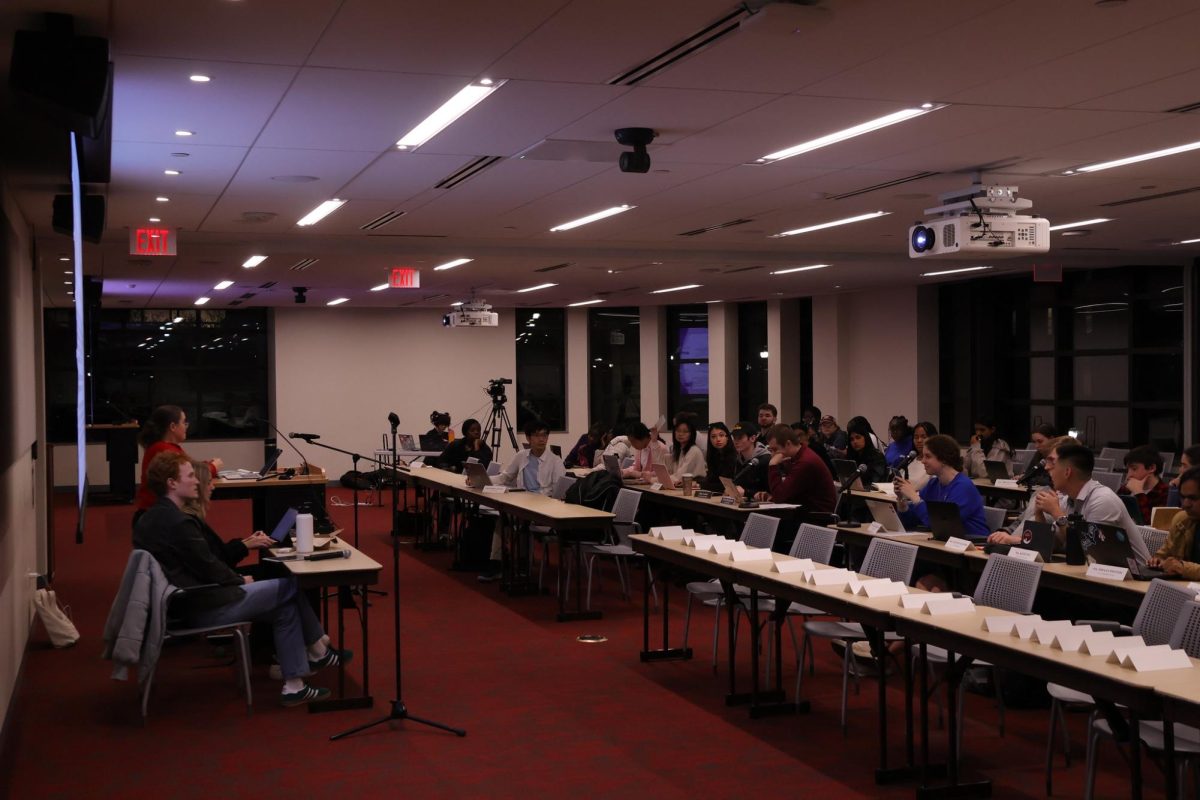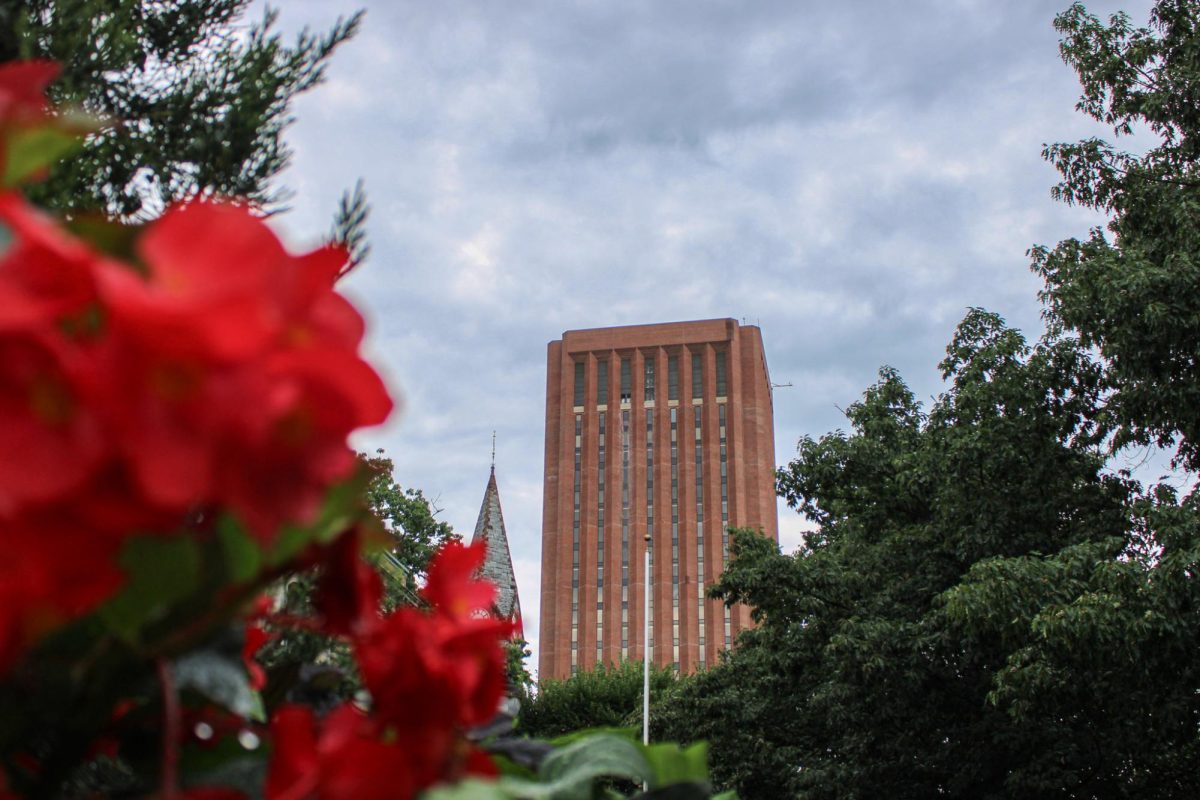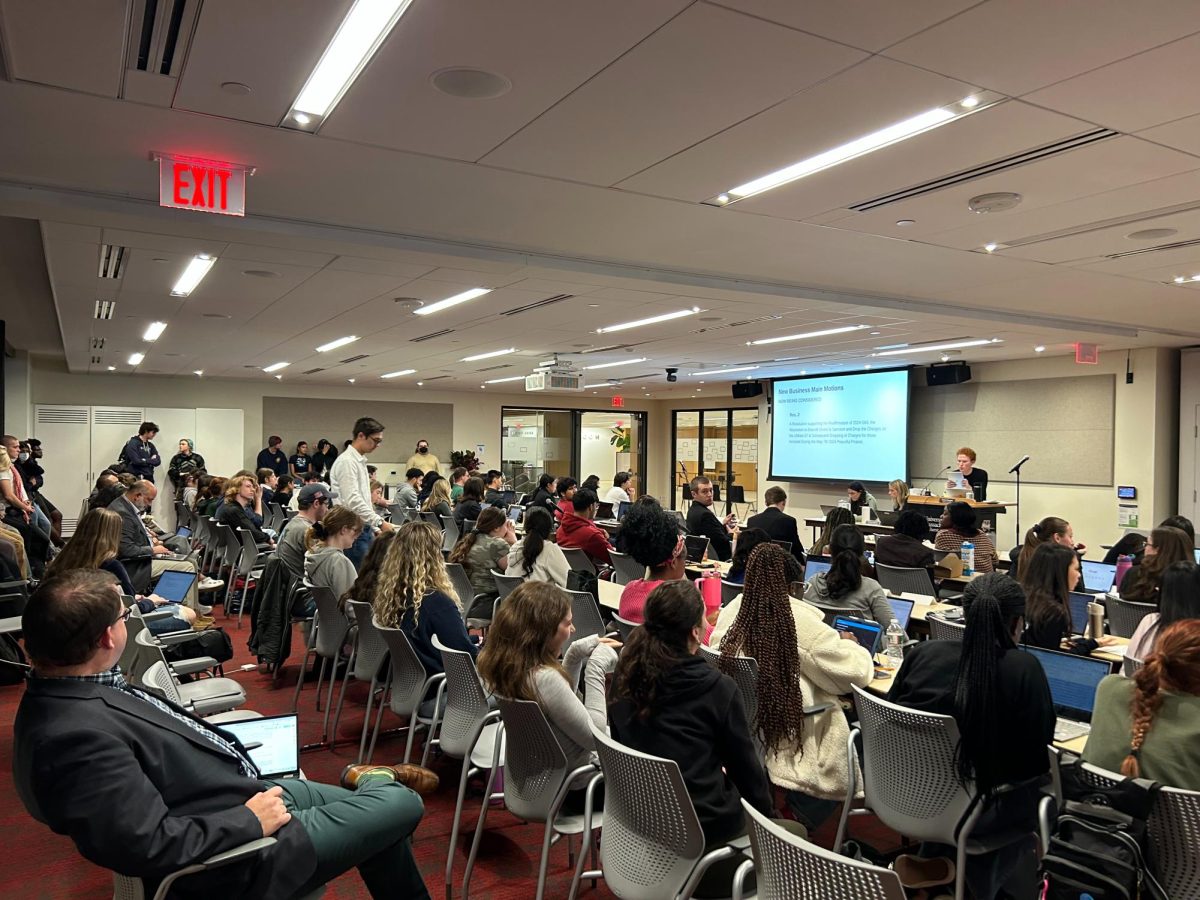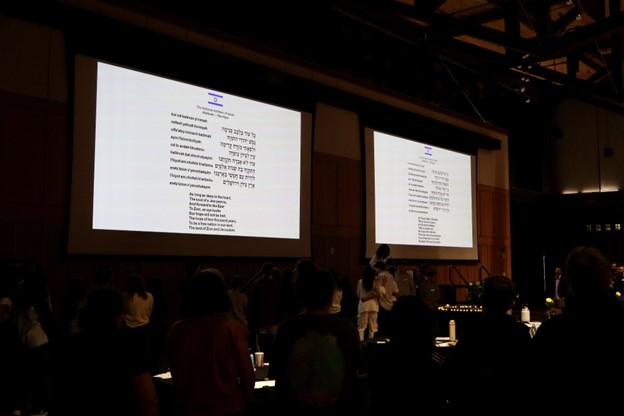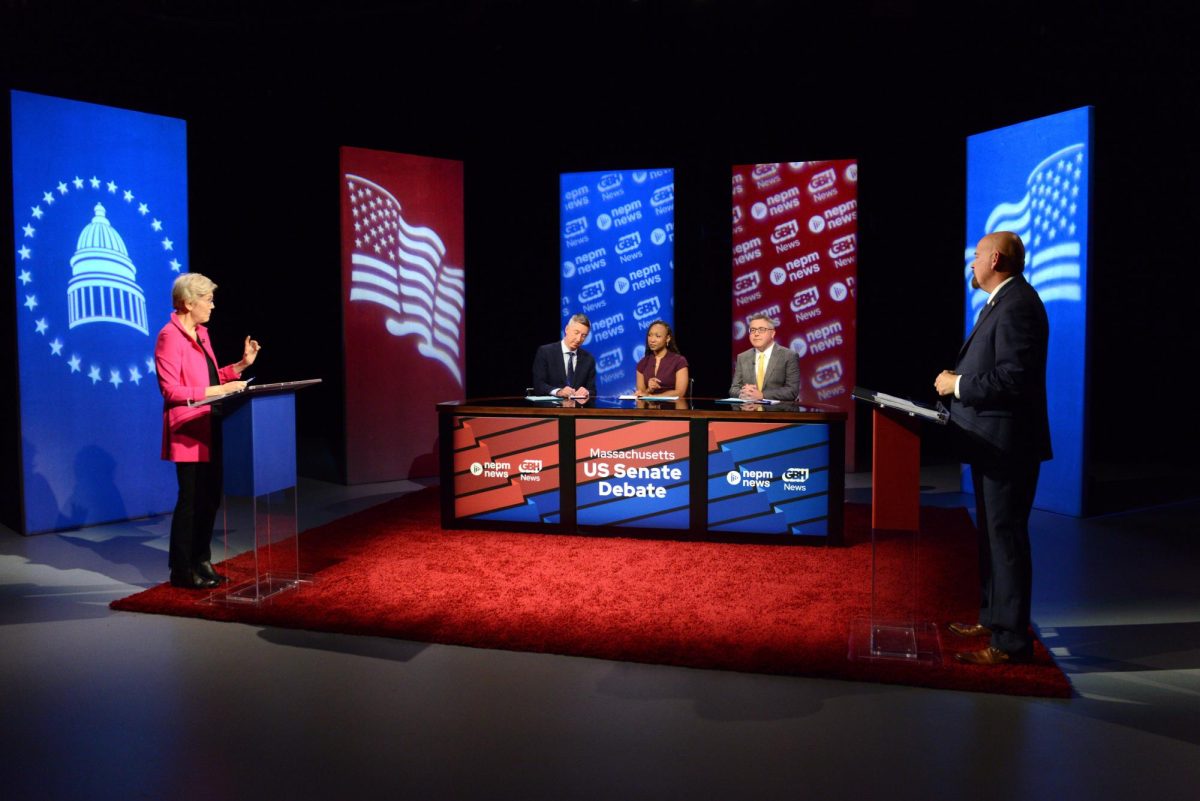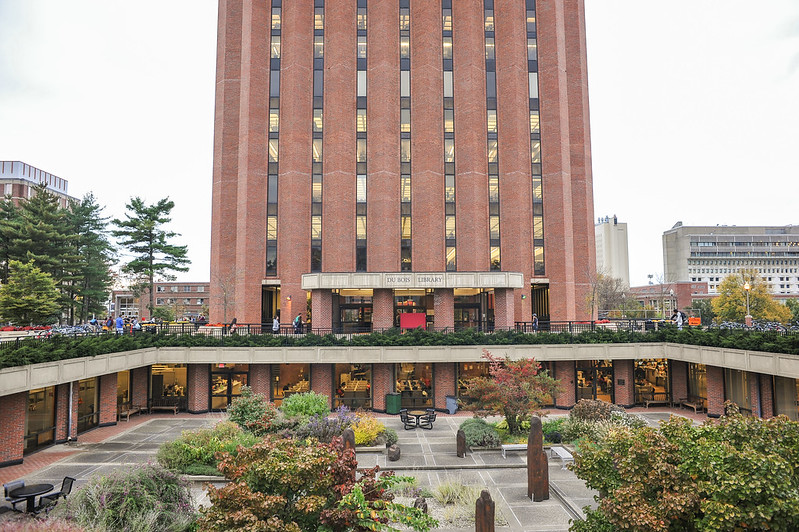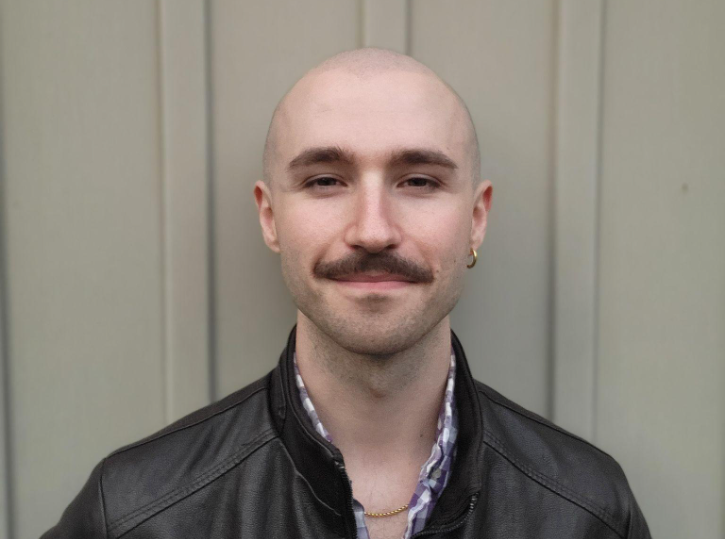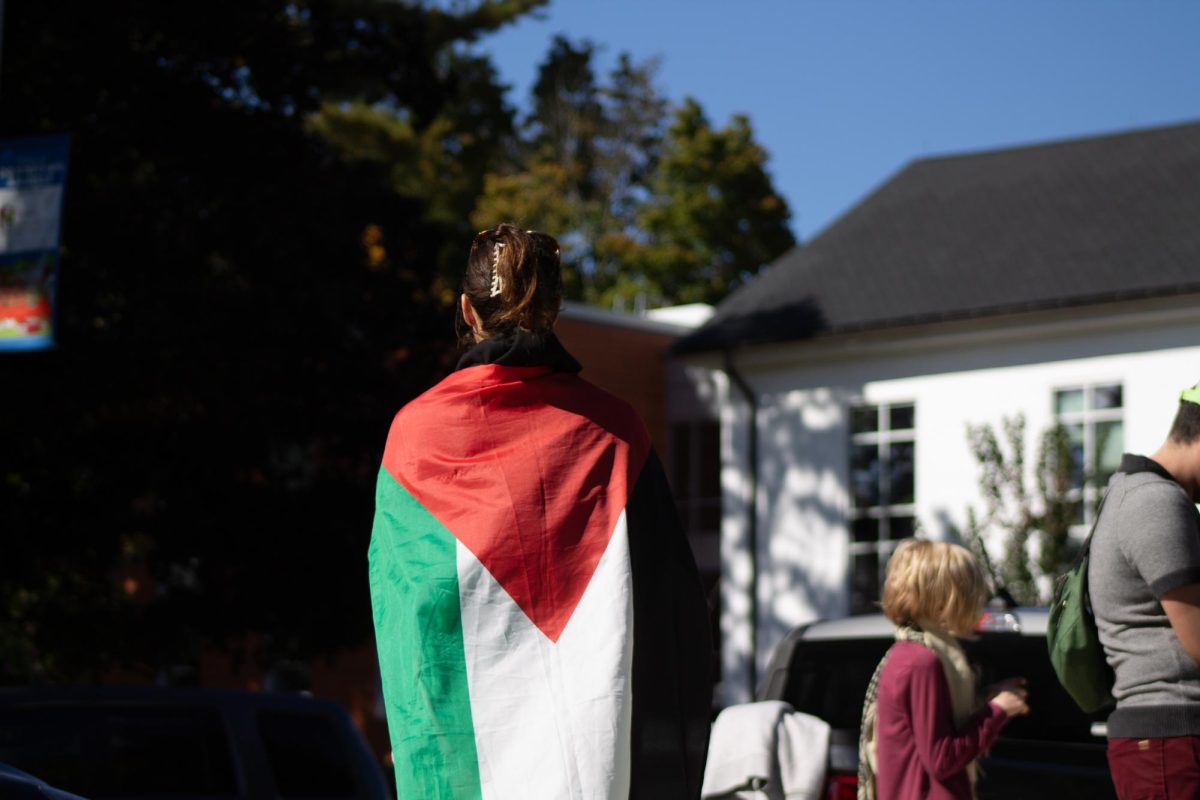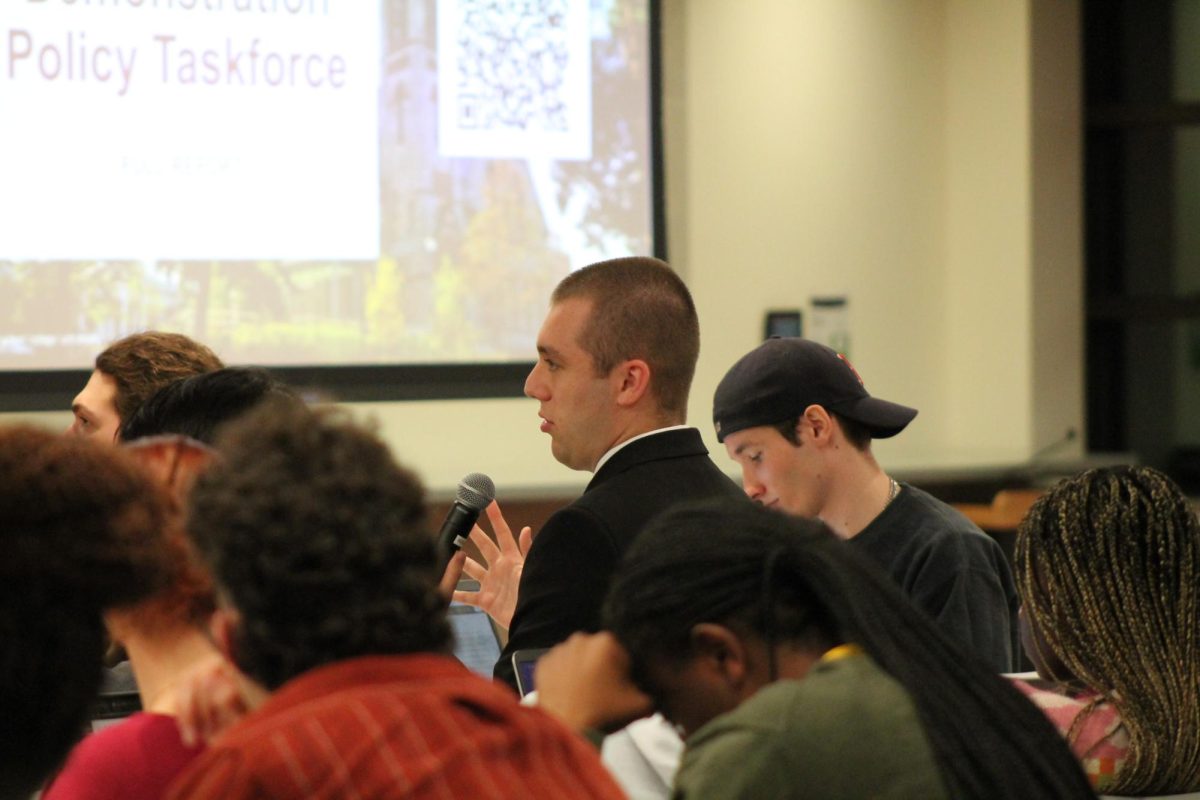
Vincent Michelot, director of science at Politique-Lyon, an elite school in France, offered during a lecture Tuesday morning in Machmer Hall his criticism on the social and political limitations of religion, class and race in France and how this has caused a recent outbreak in terrorism.
In the midst of the recent Copenhagen shootings located at both a free-speech event and Danish synagogue, Michelot, who formerly taught at Amherst College, revisited the recent Charlie Hebdo attack to question the French republican model’s influence on terror motives.
On Jan. 7, journalists worldwide were shocked by an attack in Paris which left 12 dead and 20 injured. Charlie Hebdo, a French political satire magazine, notoriously runs cartoons teasing ethnic and religious backgrounds.
In a video of the attack, one gunman yells, “Allahu Akbar!” meaning, “God is great!” The French government immediately declared the incident an act of terrorism.
Parisians began defending their rights for free speech and their national motto of “liberty, equality and fraternity” by demonstrating on Place de la Rèpublique that night.
“Freedom was directly attacked and deeply wounded that day. I felt betrayed that some people could decide to murder a journalist for doing his job, my job,” said Juliane Scowcroft, a 28-year-old journalism student at Ecole Supérieure de Journalisme (ESJ) Paris, who participated in the Jan. 11 demonstration.
Michelot began Tuesday’s lecture by discussing the demonstrations.
“I had never seen such energy, passion and quiet in the French and it reminded me of reactions to 9/11,” he said.
Michelot then explained, “The New York Times and Washington Post hastily wrote that Charlie Hebdo got what it caused.”
Throughout the following hour, Michelot expanded upon this by illuminating the long-term identity struggle of Muslims and other minorities in France. Although several parallels can be drawn between the Charlie Hebdo attack and the attacks of Sept. 11, 2001, Michelot argued that there is a cross-cultural divide on free-speech, constitutional rights and religious popularity and regulations.
Michelot pointed out that France has not effectively assisted communities of religion and race who feel victimized by the free state rules. Within a model that claims it cannot recognize differences, both schools and employment remain deeply inflicted by discrimination.
Michelot explained that during the 1960s and 70s, accelerated secularization limited those who supported the role of churches, forming a society that views church as a “taboo” subject and leaving no room for the traditions within conservative religions such as Islam.
The French state has been “putting Euros in priority impoverished areas” but has yet to recognize language and cultural barriers keeping minorities from succeeding.
Much of French courts and public policy focus on primarily individual cases instead of minorities as a struggling group, he said. Although French higher education institutions have made recent strides to circumvent race, the effects are still generally rigid.
“When I look at my 300 students in their fourth year, I only see white faces,” Michelot said.
The consideration for French rights to free speech address the concept of blasphemy in the public sphere. While the American constitution permits otherwise, the French parliament claims it as a violation to deny historical facts such as the Holocaust and profess hate speech. Therefore, France uses humor as an outlet of free speech and such is the role of Charlie Hebdo.
“Due to their limitation in expressing opinions on the minority groups and religions, they use humor explicitly as an outlet for expression,” Michelot said.
The Muslim identity is similarly limited in its rights to free speech and cultural expression. Certain Muslim individuals in France used violence as a means of controlling their own identities and circumstances.
“Religion does not solve social problems,” Michelot said to close his lecture. “I don’t see a significant increase in racial and religious acceptance in the next five to 10 years.”
Rachel Ravelli can be reached at [email protected].

